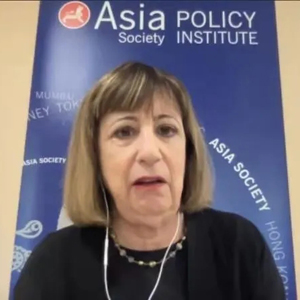Book Launched on Dialogue with Global Opinion Leaders
[English]
[Chinese]
On December 16, 2022, CCG released the new book CCG Global Dialogues: Understanding Globalization, Global Gaps, and Power Shifts in the 21st Century during the 7th China Global Think Tank Innovation Forum. The book was edited by Wang Huiyao, President of CCG and Miao Lu, Secretary General of CCG, and was published by Palgrave Macmillan, an internationally renowned publisher.
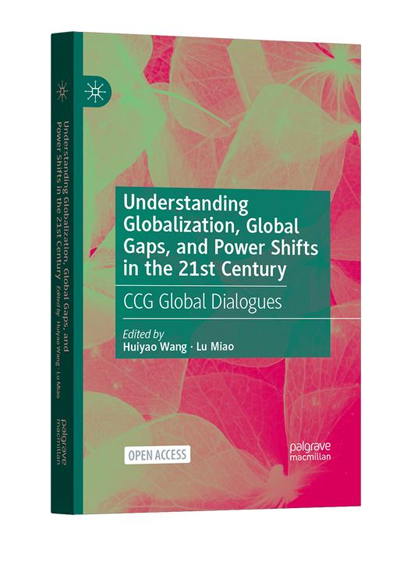
Book Link:
https://link.springer.com/book/10.1007/978-981-19-3846-7
CCG initiated “CCG Global Dialogues” in 2021 to foster reasonable, objective and in-depth dialogues with dozens of international opinion leaders. The views shared by the guests in the dialogue is extremely valuable to understanding global development trends as we begin to rebuild. The dialogue also proposed a number of ideas on how to jointly create a peaceful, prosperous and more inclusive world in the post-pandemic era. Therefore, the timeliness and importance of these philosophies is manifested. Just as John Thornton reminds, when looking at the Earth from space, there is no real difference between the people living in China, US, Africa, Europe and other places, and the boundaries between human beings are invisible.
Dialogue Points
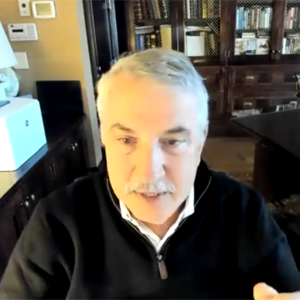 We’re having a valuable dialogue – you’re giving me China’s perspective and I’m giving you the concerns of America. Having a respectful dialogue is so important.
We’re having a valuable dialogue – you’re giving me China’s perspective and I’m giving you the concerns of America. Having a respectful dialogue is so important.
Thomas L. Friedman
Author and New York Times Op-Ed columnist
I say that Song Dynasty China was the most globalized place on Earth at the time. The reason I say that is that so many people in China lived on the coast, as is still true today…Valerie Hansen
Historian, Sinologist and the Stanley Woodward Professor of History at Yale University
We can’t decouple, and we mustn’t decouple. I think having deep economic relations is a good thing, both because it makes us more prosperous and also because it gives us a strong interest in one another’s fate. It also leads to exchanges of ideas, knowledge, and understanding. Martin Wolf
Martin Wolf
Chief Economics Commentator at the Financial Times

Sir Angus Deaton(Left)and Anne Case(Right)
A few people became very wealthy from this increase in the size of the pie that globalization brought. But a lot of people’s lives were damaged, their communities were destroyed, and their families saw no prospects for the future, and no one took care of that. So, I think you need to make sure that things continue to work for the polity as a whole.Anne Case
Alexander Stewart 1886 Professor of Economics and Public Affairs, Emeritus at Princeton University
You have to make sure that markets work for people and not just for the capitalists…China has a much more muscular government that tends to be more independent of interests such as industry or banking. That separation is very important, and democracy is supposed to be able to keep these interests separate, but it’s not been doing it very well in the US.
Sir Angus Deaton
Senior Scholar, Princeton School of Public and International Affairs
With respect to China’s accession to the WTO, I am a firm believer that it was the right decision for the United States at that time to be a supporter of China’s WTO accession. When I look at the important legal and regulatory changes that China made at that time, how it opened and reformed its economy, and as you mentioned, how it became a global trade force, it has brought benefits to the international trading environment…With respect to China, I think that it’s going to be important for China to step up here and help move the WTO forward and update its rules.Wendy Cutler
Vice President at the Asia Society Policy Institute and former Acting Deputy US Trade Representative

…on this issue of China joining the WTO and the 20th anniversary of this accession. As you know, there’s now a narrative in the West that suggests accepting China into the WTO was a mistake and that those who supported it, and I rank among them, were stupid enough to be cheated by China. This is absolutely wrong. I totally agree with what Henry said, you just have to look at the numbers. When China joined the WTO, its external trade surplus was around 10 percent of Gross National Product (GNP) and it’s now around zero or 1 percent. How does such a change happen? There’s only one way, which is to import more than you export, and this is what has happened. So, the answer is that China’s accession to the WTO has been a big contribution to the world’s economy.Pascal Lamy
President of the Paris Peace Forum and former Director-General of WTO

What we’re looking for is a framework under which we can agree to disagree, I think that’s the important thing. The strange thing is, I think we are clear about where we can agree – we can agree on things like climate change, how to deal with global health issues, and sustainability. There’s a consensus, so with China, we’re dealing with a partner on those issues – and these are the big issues for human survival. But we’re going to need a way to deal with disagreements, which may be significant, but they are not to be important enough to jeopardize the future of humanity.Kerry Brown
Director of the Lau Institute, King’s College London
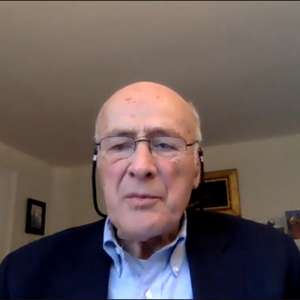
Basically, as I see it, China does not pose an existential threat to the United States and the United States doesn’t pose an existential threat to China. We’re not trying to take over China. So, in that sense, we will compete, but we should limit the fears…I think that you could imagine some period – who knows, maybe 2035 – when you’ll see the cycle turn towards better relations, or maybe even sooner than that.Joseph Nye Jr.
Harvard University Distinguished Service Professor, Emeritus
The objective conditions of the 21st century have condemned the US and China to co-exist since the only other option is to co-destruct. [the US and China] are both so entangled in the process of globalization and the global economy that neither can “decouple” itself from the other without impoverishing itself. So, on the one hand, [the US and China] are going to be fierce rivals. On the other hand, we’re condemned by nature and by technology to cooperate in order to survive.Graham Allison
the founding dean of Harvard’s John F. Kennedy School of Government and author of Destined for War: Can America and China Escape Thucydides‘ Trap?

I think the United States has to stop thinking in terms of “dominance” and I think the Biden administration was wrong when it introduced the concept of “dealing with China from a position of strength.”Stapleton Roy
Founding Director Emeritus at the Kissinger Institute on China and the United States of Wilson Center

To state the obvious, the ties between American and Chinese people are absolutely essential to getting the relationship where it needs to be. I’m hopeful that the younger people who have a vested interest in the long-term future of their countries and the world will be forces for good in the relationship.John L. Thornton
Chair Emeritus at the Brookings Institution and Co-Chair of the Asia Society
…for effective dialogue and communication, we need real mechanisms such as the S&ED (US-China Strategic and Economic Dialogue) and the BIT (US-China Bilateral Investment Treaty)…ZHU Guangyao
CCG Advisor and former Vice Minister of Finance of China
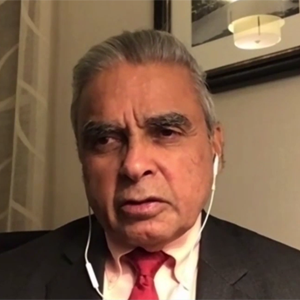
I must say that the tragedy about China is that quite often, on global challenges, China contributes a lot, but is not very good at marketing its contributions. The world doesn’t really know what China is doing…This is why it’s very important for China to make a bigger effort to try and explain to the rest of the world what it is doing. I think it’s important to make sure this message is conveyed, not necessarily by spokespeople of China, but by friends of China around the world…I hope that China will do its very best to try and revive, strengthen, and support the United Nations. Because the United Nations may become, at the end of the day, a valuable soft line of defense for China, because any time the West attacks China, China can take the issue to the UN General Assembly and then ask the rest of the world, do you agree with the West or do you agree with China? Have a debate, and then the West will be surprised to discover that many in the world don’t agree with many points the West is making on global governance issues, and so this provides a geopolitical opportunity for China to strengthen these institutions of global governance like the United Nations.Kishore Mahbubani
Distinguished Fellow at the Asia Research Institute (ARI), National University of Singapore (NUS) and Founding Dean of the Lee Kuan Yew School of Public Policy
 We’re having a valuable dialogue – you’re giving me China’s perspective and I’m giving you the concerns of America. Having a respectful dialogue is so important.
We’re having a valuable dialogue – you’re giving me China’s perspective and I’m giving you the concerns of America. Having a respectful dialogue is so important.

 Martin Wolf
Martin Wolf
